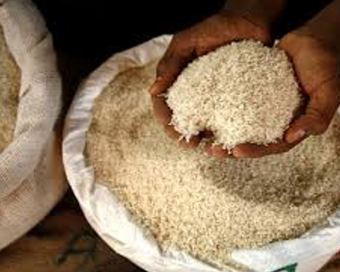Gallery
 PM Modi visit USA
PM Modi visit USA Only the mirror in my washroom and phone gallery see the crazy me : Sara Khan
Only the mirror in my washroom and phone gallery see the crazy me : Sara Khan Karnataka rain fury: Photos of flooded streets, uprooted trees
Karnataka rain fury: Photos of flooded streets, uprooted trees Cannes 2022: Deepika Padukone stuns at the French Riviera in Sabyasachi outfit
Cannes 2022: Deepika Padukone stuns at the French Riviera in Sabyasachi outfit Ranbir Kapoor And Alia Bhatt's Wedding Pics - Sealed With A Kiss
Ranbir Kapoor And Alia Bhatt's Wedding Pics - Sealed With A Kiss Oscars 2022: Every Academy Award Winner
Oscars 2022: Every Academy Award Winner Shane Warne (1969-2022): Australian cricket legend's life in pictures
Shane Warne (1969-2022): Australian cricket legend's life in pictures Photos: What Russia's invasion of Ukraine looks like on the ground
Photos: What Russia's invasion of Ukraine looks like on the ground Lata Mangeshkar (1929-2022): A pictorial tribute to the 'Nightingale of India'
Lata Mangeshkar (1929-2022): A pictorial tribute to the 'Nightingale of India' PM Modi unveils 216-feet tall Statue of Equality in Hyderabad (PHOTOS)
PM Modi unveils 216-feet tall Statue of Equality in Hyderabad (PHOTOS)The Badminton Association of India (BAI) has announced a 14-member-strong India squad for
- Men’s Sr Hockey Nationals to be played in division-based format from April 4
- Mensik denies Djokovic 100th title in Miami final
- KIPG: Son of a vegetable vendor, Bihar’s Jhandu Kumar eyes Worlds, 2028 Paralympics
- Hardik Singh credits hard work and team unity for receiving HI Midfielder of the Year award
- Djokovic, Alcaraz land in same half of Miami draw
Pakistan risks Basmati export as India applies GI tag in EU Last Updated : 19 Sep 2020 03:08:53 PM IST 
Basmati rice (file photo) Pakistan is facing another potential threat of a major damage to its exports as India has applied for an exclusive Geographical Indications (GI) tag to Basmati rice in the European Union (EU).
Pakistan on the other hand, is still yet to implement the GI law promulgated in March.Despite the fact that Pakistan produces a wide range of Basmati rice in the country and benefits from its export to the EU and other parts of the globe, New Delhi has said that it is an Indian-origin product in its application, published on EU's official journal on September 11.As per the Indian application, Basmati is special long grain aromatic rice grown and produced in a particular geographical region of the Indian sub-continent.It added that this region is a part of northern India, below the foothills of the Himalayas forming part of the Indo-Gangetic Plains (IGP)."The special characteristic of Basmati is grown and produced in all districts of the state of Punjab, Haryana, Delhi, Himanchal Pradesh, Uttarkand as well as in specific districts of western Uttar Pradesh and Jammu and Kashmir", the Indian application maintained.Leading Pakistani rice exporters have called on the government to immediately oppose the Indian application."Indian application at EU must be opposed immediately as it would badly damage Pakistani exports to European countries," said Taufiq Ahmed, a leading exporter and bearer of Rice Exporters Association of Pakistan (REAP)."Despite repeated requests and reminders, concerned authorities in Pakistan have been ignoring this serious issue for years and now if the problem is not handled swiftly then we would be left with no option but to sell Basmati rice with an Indian name/brand," he added.Ahmed said that Pakistan must come in immediate consultation with international dictionaries to rectify the definition as the same rice is largely produced in the country."Apart from opposing the GI tag from the EU, Pakistan must also consult international dictionaries to rectify the definition."Unfortunately, India is also regarding Himalayan salt and Multani Mitti with Indian names in the international market", he said.Official sources from the Federal Ministry of Commerce said that the Indian application in the EU will definitely be opposed.They added that since the GI law has been promulgated, Islamabad would take up the issue of all GI products of Pakistani origin with the EU."Basmati was already recognized as a product of both India and Pakistan in the European Rice Regime and its Duty-Free Regime, making it illegal for India to claim exclusive rights of Basmati in the EU," said an official from Intellectual Property Organization (IPO), an attached department of the Ministry of Commerce."The Cambridge dictionary and Wikipedia also show the product as originating from Pakistan and India," he added.Pakistan enacted the Geographical Indications (Registration and Protection) Act in March this year, which gives it the right to oppose Indian application for registration of Basmati rice exclusive rights.As per the EU's official journal, any country can oppose the application for registration of a name pursuant to Article 50(2) (a) of Regulations (EU) No 1151/2012 of the European Parliament and of the Council on quality schemes for agricultural products and foodstuffs within three month from the date of publication.IANS Islamabad For Latest Updates Please-
Join us on
Follow us on








172.31.16.186







